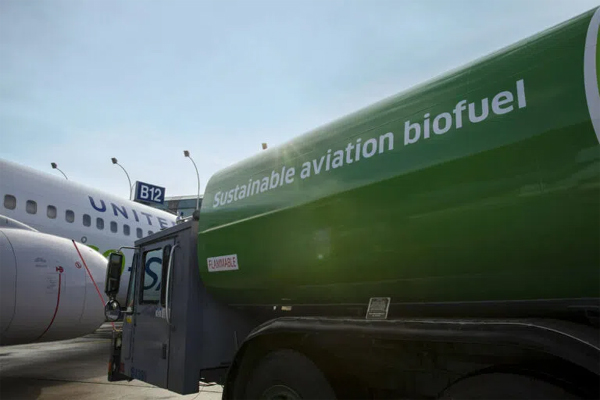
Jasmin Melvin, Platts
WASHINGTON
EnergiesNet.com 05 20 2022
As a June 3 deadline approaches for the Environmental Protection Agency to issue long-overdue annual biofuel blending requirements, the aviation industry is calling for “fixes” to an aspect of the agency’s proposal aimed at making more fuels and feedstocks eligible for credit under the Renewable Fuel Standard program.
The EPA’s RFS proposal for the 2020 through 2022 compliance years included a new regulatory framework that would make biointermediates eligible for inclusion in the RFS program. The aviation sector sees this as a key step for ramping up biofuel production, particularly for sustainable aviation fuel needed to wean the sector off petroleum-based jet fuel and put it on a path to net-zero emissions by 2050.
The processing of biointermediates into biofuel takes place at two or more separate facilities, and existing regulations do not allow RFS compliance credits, called RINs, to be generated when multiple facilities are involved in the conversion of renewable biomass feedstocks into renewable fuel.
So, for instance, woody biomass converted at one facility into biocrude, a biointermediate, could be processed into renewable fuel if sent to a crude oil refinery, but that refinery would not be able to count that fuel towards its RFS obligations. That would change under the EPA’s latest RFS proposal.
But the Business Aviation Coalition for Sustainable Aviation Fuel has argued that “regulatory roadblocks” perpetuated by the EPA are “hindering further commercialization and scale-up of SAF.”
The coalition said in a recent letter to White House National Climate Adviser Gina McCarthy that those roadblocks stand in the way of achieving the Biden administration’s SAF Grand Challenge, which aims to boost SAF production to at least 3 billion gallons/year by 2030.
Complementary regulatory framework
A first step in ensuring “a complementary regulatory framework” conducive to advancing the availability of low-carbon, domestic fuel sources for aviation should be finalizing the biointermediate provisions of the RFS rule “with simple fixes” that would expedite the regulatory process for SAF, according to the coalition, which includes aerospace companies, airlines, airports, biotechnology, business aviation and renewable fuels producers.
Those fixes, detailed in the letter, entail allowing SAF feedstock to be processed at more than two facilities; allowing biointermediate feedstock to be sold to more than one refinery; updating the definition of “biocrude;” allowing for commingling of biointermediates; and authorizing use of pipeline biogas for SAF.
The EPA has said that biointermediates could reduce biofuel production costs and expand opportunities for more cost-effective advanced and cellulosic biofuels as well as biomass-based diesel. And many stakeholders in the otherwise contentious debate over the RFS agreed, in comments filed to the agency, with refiners and biofuel advocates finding common ground here.
A number of companies and industry groups, including the American Petroleum Institute, American Fuel & Petrochemical Manufacturers, Renewable Fuels Association, ExxonMobil and LanzaJet, have and are continuing to meet with EPA officials in the run-up to the release of the final RFS rule, according to public information on the Office of Management and Budget’s website.
Meetings with EPA staff tied to promulgation of the final rule are thus far scheduled through May 26 as stakeholders seek to influence the regulation that will set the amount of renewable fuel that must be mixed with gasoline and diesel for the 2020, 2021 and 2022 compliance years.
The National Corn Growers Association is on the calendar for May 23, with the Advanced Biofuels Association coming in for a May 24 meeting and a May 25 meeting set with the National Air Transportation Association.
RFS deadlines
A settlement to resolve litigation brought by ethanol group Growth Energy over the delay in setting annual renewable volume obligations, or RVOs, holds the EPA to a June 3 deadline to finalize the RFS proposal.
Growth Energy announced May 20 that it had also reached an agreement with the EPA, subject to a comment period and federal district court sign-off, that requires the agency to propose the 2023 RVO by Sept. 16 and finalize it by April 28, 2023.
“Securing a deadline for the 2023 RVO is a significant victory in our mission to ensure certainty when it comes to biofuel blending, especially as we face a new era of the RFS,” Growth Energy CEO Emily Skor said May 20. “2023 is the first year where required volumes of renewable fuel are not specified by Congress and must be set by EPA.”
spglobal.com 05 20 2022












